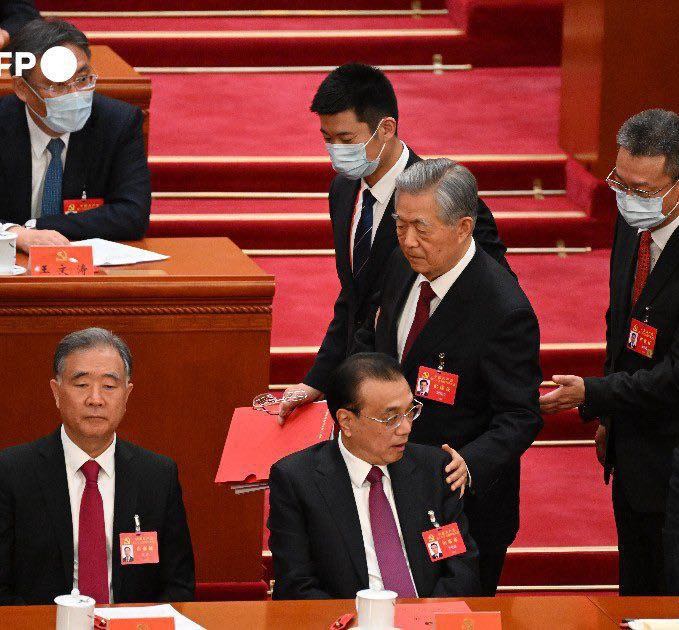
Contentious politics is exciting for its eventfulness, newness, and creativity. This wave of multi-site protests in China is spontaneous, novel, and epic. It is still unfolding; its ending and consequences are uncertain. We may only offer a tentative analysis of its causes. 1/ 

In the past weeks, we saw violent labor protests in Zhengzhou, contentions mourning the deaths in Urumqi, the spread of the mourning protests in other cities, the campus protest in Nanjing Media College and other universities, and massive online protests (& censoring). 2/
More strikingly, new slogans, symbols, and tactics emerged out of this wave of protests. We saw solidarity of Han and minorities in Xinjiang, “Xi Jinping Step Down” in Shanghai, white paper in multiple campuses, and “freedom” & “democracy,” words disappearing for 30 years. 3/ 

Why were Chinese people able to mobilize in such a scale to protest against a regime that has turned more dictatorial recently? Why did Xi’s full control lead to full collapse? Why did China’s all-encompassing security and surveillance apparatus fail to prevent the protests? 4/
Revolutionary movements arise with immediate and underlying causes. The immediate cause is obvious this time: people are dissatisfied with the Zero Covid policy especially its stringent local implementation even after the Party Congress. There seems no exit, no end, & no hope. 5/
This may be the onset of more protests in China, which is trapped in a dilemma due to its slow push for elder vaccination. Abrupt opening will cause massive deaths & then national lockdown; continuing Zero Covid is unsustainable. Dynamic zero-covid leads to dynamic unrests. 6/
The underlying cause is more ironical (but not surprising to us): full centralized control leads to full responsibility and then national movement targeting at the center when expectations are not met. This is a Tocquevillian wisdom in his Old Regime and the French Revolution. 7/
Then how did Chinese citizens mobilize in the absence of social movement organizations or networks? There are three mechanisms. First, in a mass society where intermediate organizations are absent, citizens can spontaneously & surprisingly self-mobilize if no other way out. 8/
Second, ecological mobilization. Just like the Tiananmen movement, ecology-based mobilization again played an vital role when formal organizations did not exist: Factory dormitory in Foxconn, neighborhood solidarity in Urumqi & Beijing, and campus ecology in 100 universities. 9/
Third, social media effects: weibo, wechat & douyin played a key role in mobilization. China is tightly censored, but social media innovation & censorship became a game of recursive interactions this time. The “white paper” was an unexpected product in this endogenous process.10/
Finally, never forget contingency! This time it is the World Cup, which makes another dilemma for the Chinese state. People watch it and know how open and free outside of China; but if it is banned, more citizens will go to street. Either way, Football Fuels Fighters! 11/11 

The next question that we have no answer yet: have political elites divided? Are there elite allies—even if tacitly—supporting protesters? Would Xi use this opportunity to purge his political rivals regardless of their attitudes? We may see the answers in the next few weeks.
• • •
Missing some Tweet in this thread? You can try to
force a refresh











